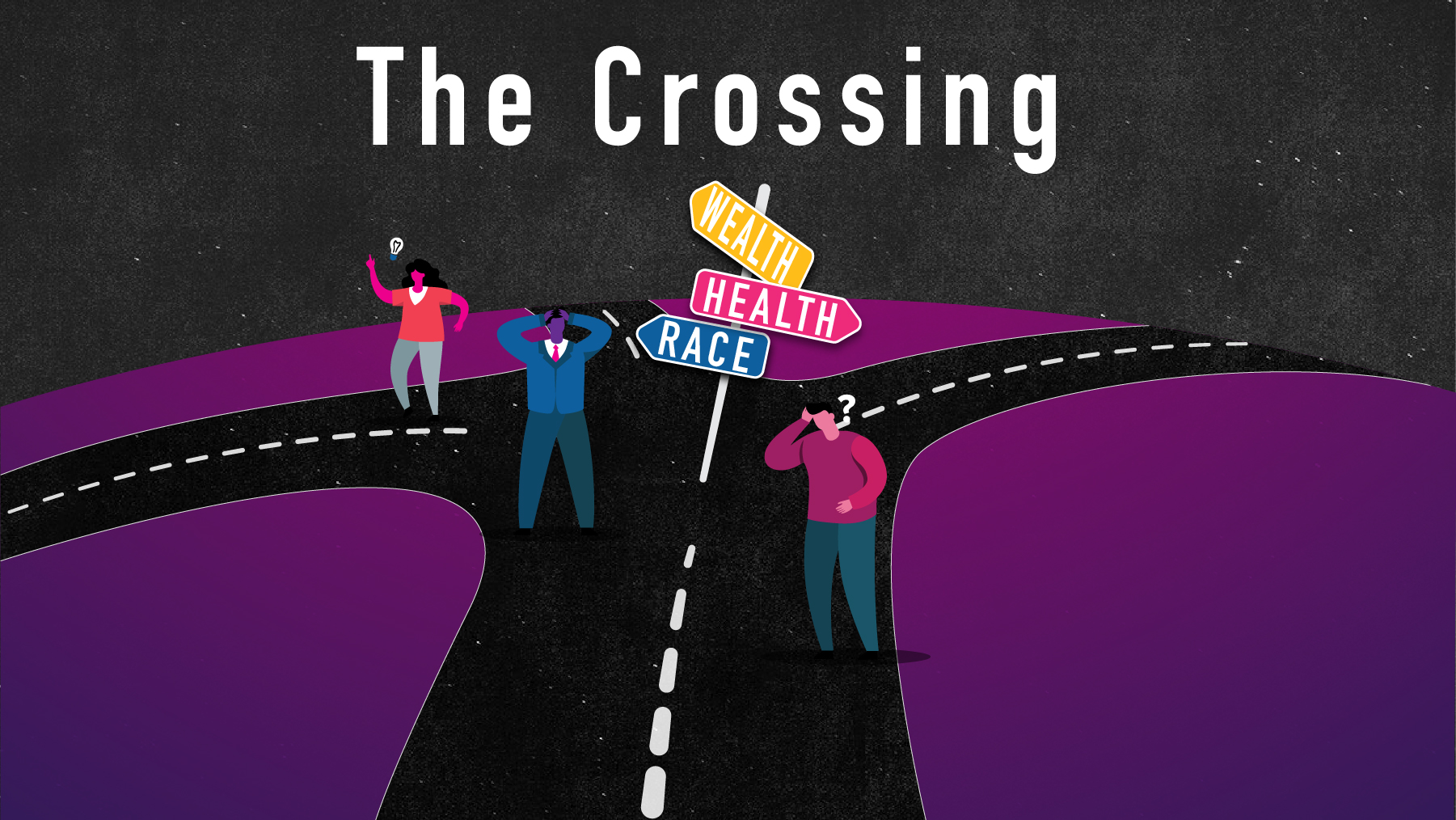The Crossing Podcast
The Crossing: How Californians’ Health Is Tied to Wealth and Race
In a special podcast series, Mark Kreidler talks to experts and advocates about the economic and racial determinants of health in the Golden State.

With 41 years as a registered nurse and a lived experience as the biracial daughter of Japanese and African-American parents, Cathy Kennedy, co-president of the California Nurses Association, is certain of one thing.
“Health care,” she says, “is a human right.” (Disclosure: The CNA is a financial supporter of this website.) But in California, as elsewhere across the U.S., health care is a human right only in theory. Increasingly and unerringly, health outcomes in the state are driven by such factors as race, ethnicity and income — and the divide between the haves and have-nots is growing.
The COVID-19 pandemic set into motion a display of what happens when entire groups of people are left behind in the health care conversation — the culmination, experts say, of decades of neglect in an industry that is built to squeeze profit out of those who can afford to pay, and to ignore or underserve the rest of the population.
With Capital & Main’s weeklong podcast series The Crossing, we take a closer look at the intersection of health, wealth and race in California. The same groups that have constantly struggled to access health care in the state – lower income families, Blacks and Latinos, immigrant workers, the homeless — are disproportionately represented among both COVID cases and deaths.
But the pandemic exposed those inequities more than it exacerbated them. The roots of the problem lie in a health system mired in top-heavy administration, often steered by those with the most political and lobbying power. And those who propose concrete solutions, such as single payer or Medicare for All, face intense pushback from companies with billions of dollars in spending power.
In this series, we’ll meet people like Kennedy, who has seen first hand the damaging health outcomes that occur among Californians who either cannot afford or can’t access routine care, and the director of a Los Angeles-based system of community clinics that can hardly meet the rising need. We will speak with solutions-oriented experts, including a politician working to extend quality health care to more residents of the state.
Increasingly, your race, ethnicity and income determine your essential well-being in California. It is at the intersection of these factors that the most honest conversations around changing the system can occur — and it is from such dialogue that a road to health care as a human right may ultimately be paved.
Copyright 2021 Capital & Main

-

 Latest NewsFebruary 3, 2026
Latest NewsFebruary 3, 2026Amid the Violent Minnesota Raids, ICE Arrests Over 100 Refugees, Ships Many to Texas
-

 Featured VideoFebruary 4, 2026
Featured VideoFebruary 4, 2026Protesters Turn to Economic Disruption to Fight ICE
-

 The SlickFebruary 2, 2026
The SlickFebruary 2, 2026Colorado May Ask Big Oil to Leave Millions of Dollars in the Ground
-

 Column - State of InequalityFebruary 5, 2026
Column - State of InequalityFebruary 5, 2026Lawsuits Push Back on Trump’s Attack on Child Care
-

 Column - California UncoveredFebruary 6, 2026
Column - California UncoveredFebruary 6, 2026What It’s Like On the Front Line as Health Care Cuts Start to Hit
-

 The SlickFebruary 10, 2026
The SlickFebruary 10, 2026New Mexico Again Debates Greenhouse Gas Reductions as Snow Melts
-

 Latest NewsFebruary 12, 2026
Latest NewsFebruary 12, 2026Trump Administration ‘Wanted to Use Us as a Trophy,’ Says School Board Member Arrested Over Church Protest
-

 Latest NewsFebruary 10, 2026
Latest NewsFebruary 10, 2026Louisiana Bets Big on ‘Blue Ammonia.’ Communities Along Cancer Alley Brace for the Cost.
